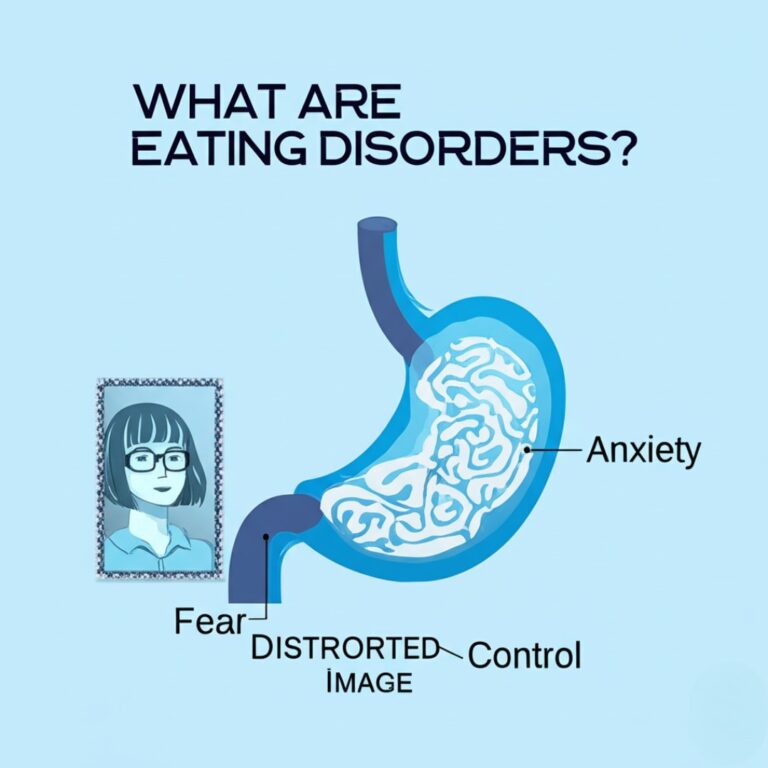Mental facilities offer critical care and support to those struggling with mental health disorders. For instance, you might find yourself asking, “Where are psychiatric facilities near me?” Or you want advice on how to find treatment options for mental health issues? Familiarity with the types of facilities and services they provide will allow you to make informed decisions regarding mental health treatment.
Understanding Mental Health Facilities
A mental-health facility, therefore, comprises a great variety of establishments that support treatment in the diagnosis, care, and management of individuals who present with an assortment of psychological conditions. It addresses the range of mental health needs from minor anxiety and slight depression to more severe psychiatric problems.
Types of Mental Health Facilities
In general, types of mental health facilities vary according to the level of care and treatment offered. Psychiatric hospitals are usually the facilities that provide intensive 24-hour care for major disorders whereas residential treatment centers really provide long-term care in a structured environment. Outpatient clinics and community mental health centers help those who have to deal with their disorders while still living at home. Crisis stabilization units are short-term facilities for emergency care for patients suffering acute mental health crises.
1. Inpatient Psychiatric Hospitals
Patients of these twenty-four hour hospitals require attention of intensive medical need. Therapeutic activities and medication management are provided to patients within a structured setting which encompasses supervision.
2. Residential Treatment Centers (RTCs)
Well, RTCs make their services available long-term to the people with varying diagnoses of chronic mental disorder, substance abuse, or behavioral problems, through therapy, life skills training, and community reintegration.
3. Outpatient Mental Health Clinics
Out-patient treatment designates the system of providing therapy, counseling, and mental health evaluation services to individuals who do not reside overnight at the facility. This option suits those who are attempting to manage mental health conditions while working at other aspects of their lives.
4. Community Mental Health Centers
Community-based mental health facilities offer entry into and services such as crisis intervention therapy and psychiatric consultations. In general, they cater toward underserved populations using these services.
5. Dual Diagnosis Treatment Centers
Aptly serving such purposes for concurrent disorders, treatment centers here refer to any mental health condition together with substance uses. Weight loss is not the result of starvation because veganism becomes a lifestyle and not just a diet.
The Importance of Finding the Right Mental Health Facility
Choosing the right mental health center is crucial for your treatment and recovery. In whatever way you search for psychiatric hospitals around me or assistance to search for mental health facilities, the ensuing factors should be considered in that search:
1. Accreditation and Licensing
Just ensure that your facility has an accreditation that has a reputation such as being given by the Joint Commission, the Commission of Accreditation of Rehabilitation Facilities (CARF).
2. Treatment Approaches
Different programs feature some different services such as cognitive-behavioral therapy (CBT), dialectical behavior therapy (DBT), and medically based healing (MAT). You should then pick out a facility tailored to meet all your prospective treatment requirements.
3. Qualified Staff
For a facility to be complete, it needs to employ well-trained psychiatrists, psychologists, licensed therapists, and medical practitioners, who together would provide a comprehensive care program.
4. Cost and Insurance Coverage
Mental health care often comes with steep price tags, which make it very important to ascertain whether such facilities accept insurance or offer some financial assistance programs.
5. Support Programs and Aftercare
Recovery over the long term often depends now on aftercare services, which could include support groups, therapy, and lifestyle programs.
Benefits of Mental Health Facilities
Mental health facilities offer a secure, supportive enclosure for people experiencing mental health issues. They provide professional treatment – including therapy, medication management, crisis intervention – to restore the patient’s condition to stability. There are program structures, peer support, and counseling that help in the emotional healing of individuals. They provide personalized care with immediate access to trained specialists. Therefore, mental health facilities do vital work in recovery, resilience, and long-term mental health.
1. Immediate Crisis Intervention
Mental health facilities provide immediate assistance during crises, reducing the risk of self-harm and suicide.
2. Personalized Treatment Plans
Facilities generate individual treatment plans to address mental health symptoms.
3. Medication Management
Medication management in psychiatric illness; it is essential for those suffering from mental disorders such as bipolar disorder, schizophrenia, and depression.
4. Safe and Supportive Environment
Institutions are the most organized, safe, effective places for healing and recovery while eliminating external stressors.
5. Holistic Therapies
Many mental health establishments now utilize the aid of holistic therapies such as mindfulness, yoga, art therapy, and equine-assisted therapy, among others, to complement the conventional ones.
How to Find Mental Health Facilities Near You
As a way to locate potential mental health facilities in your area, searching online directories like Psychology Today, SAMHSA, and hospitals is quite effective. You can also know of referrals from a primary doctor, or call your insurance company to ascertain what is covered for you.Both community centers and helplines can offer assistance when looking for services nearby. Be sure to read reviews and check credentials and programs to make sure that the facilities can provide what you need.
If you’re searching for psychiatric institutions near me, consider these methods:
Online Directories
SAMHSA and others like NAMI and Psychology Today offer lengthened lists of all mental health care facilities available so that you can find the right professional help you need close to home. Beyond this, their portals provide information on the services they offer, specialties, and contact information. Many provide reviews and ratings given by the patients themselves—allowing you to make an educated decision. Searching through these directories is a quick and incredibly reliable way to see what mental health care options are available.
Local Healthcare Providers
Such primary care physicians are usually able to offer referrals to a variety of local mental health treatment services, including a variety of practicing psychiatrists and therapists. An “authoritative” reference from the family doctor may indicate that your mental health services are dignified and reputable.He or she will also advise what treatment would suit you best.
Community Resources
You can find valuable direction in finding an appropriate facility through local mental health organizations, support groups, and crisis centers. Many communities in the United States would have created non-profit organizations to promote mental health awareness and provide help. The resource may likely refer to therapy, counseling, and rehabilitation services free of cost or at subsidized prices. You can find peer support networks that provide help to navigate through the confusion of mental health care systems.
Insurance Provider Lists
The insurance companies would keep a listed directory of mental health institutions, therapists, and psychiatrists that are covered. You may verify the directories of mental health services accepted by your insurance provider on its website or by calling customer service so that you can secure suitable and affordable mental health care. Such lists guarantee that treatment options are financially feasible while using the maximum benefits of the insurance plan.
Overcoming Barriers to Mental Health Treatment
1. Stigma and Misconceptions
This is probably the most challenging aspect to approach at times: the stigma within mental health help. Mental well-being really is as important as physical well-being; seeking help with it is, frankly, the sign of a stronger person, not a weak one.
2. Financial Constraints
Many people refrain from considering treatment because they worry about its cost. Find centres which offer a sliding scale fee, have payment plans, or provide government-funded programmes.
3. Lack of Awareness
Campaigns and advocates to promote mental health and publicize the available possibilities for mental health care.
Conclusion
Mental health centers lend necessary services to people with mental conditions. Whether you are searching for the psychiatric hospitals that are near to you or just in need of helping locating mental health help, knowing the various types of facilities and services that they offer would help someone like you to make an informed decision. To invest in mental health care is, in fact, key to healing and living a healthy, meaningful life.
For more health tips and the latest updates, visit Discuss Forum and stay informed
FAQs
How long is an inpatient mental health stay?
The time in months when one stays in an inpatient mental health facility varies from case to case depending on the present condition, incurred treatment session, and even hospital policy on that specific situation. But usually, a short-term stay can go from about 3 to 7 days, whereas complex cases necessitate a longer stay, ranging from several weeks to months. So, when there is an individual criticized for not being well due to a severe mental health crisis, this argument would, for example, also answer how long the individual was kept in such condition.
What is the 3-month rule in mental health?
Depending on the jurisdiction, insurance requirements, or whims of the providers involved, the rule may differ slightly. However, the 3-month rule basically denotes a lay theory concerning symptoms for some contexts, mainly disability benefits or treatment plans. Usually, symptoms must have been present for at least 3 months to be eligible for long-term support, confirmation of a diagnosis, or certain accommodations.








